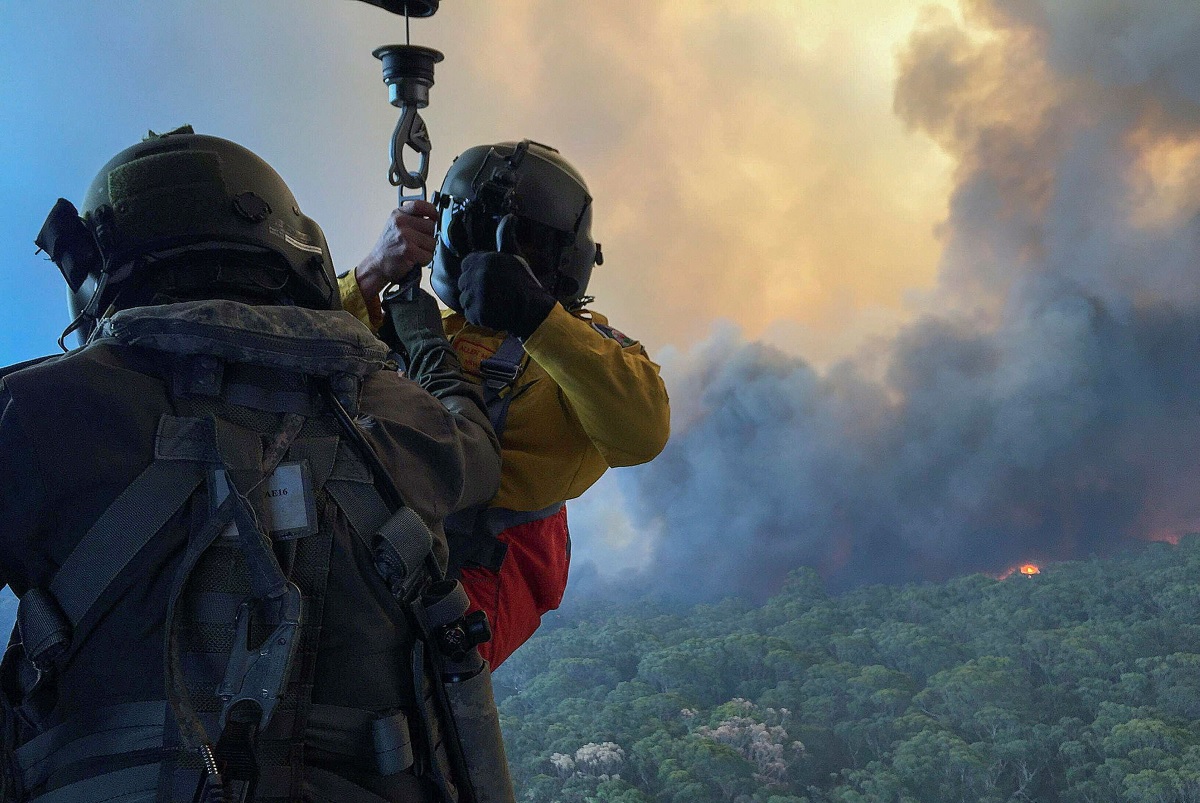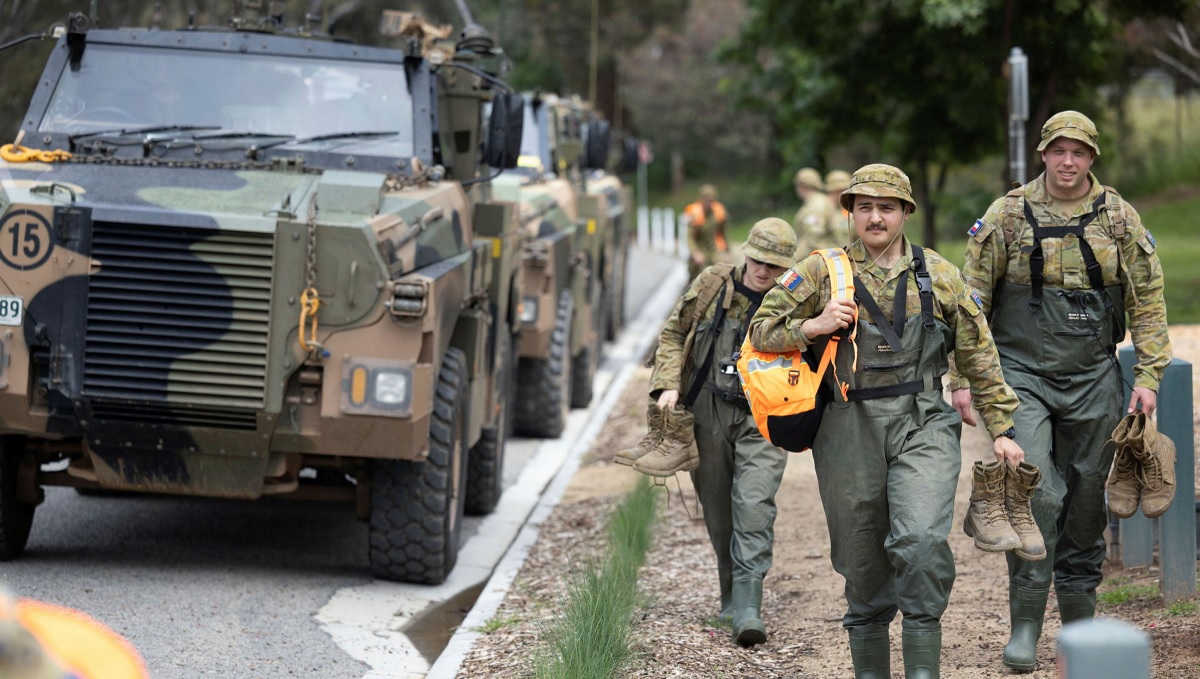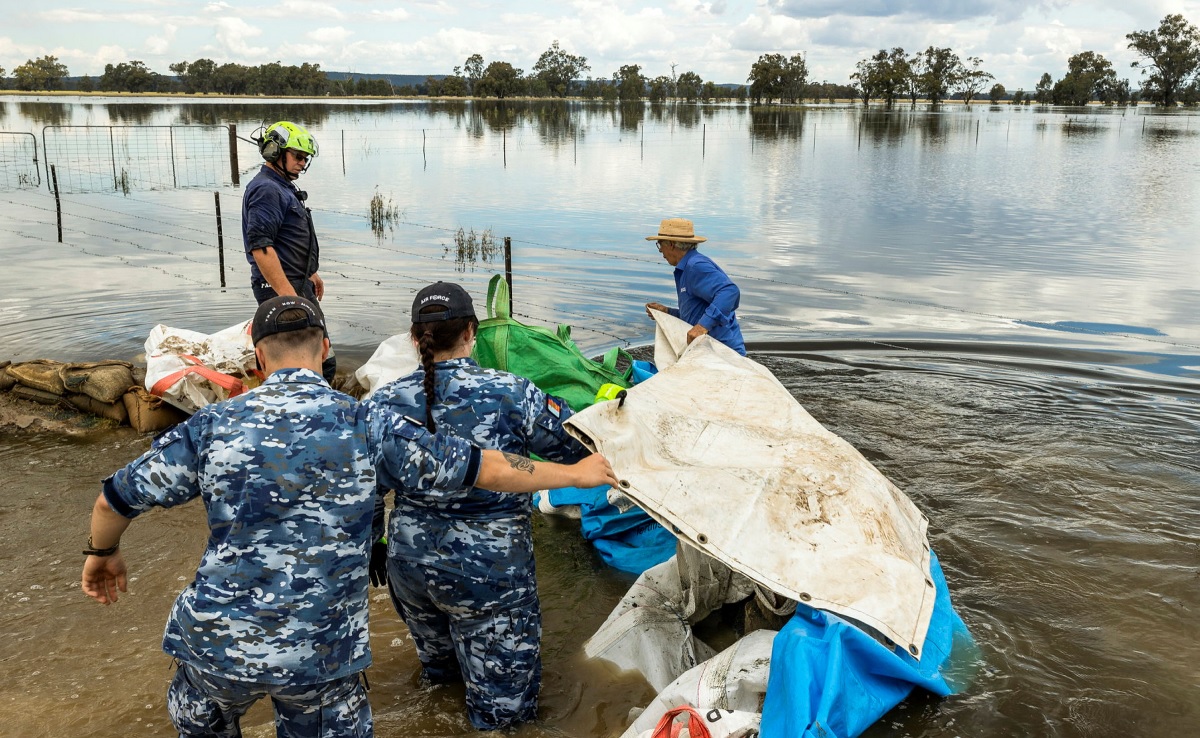
The ANAO report followed ADF involvement in major disasters like the 2019-20 Black Summer bushfires. Photo: ADF.
An audit of the Australian Defence Force’s (ADF) response to natural disasters under the Defence Assistance to the Civil Community (DACC) policy has found that while Defence has effective planning and administrative arrangements in place, that effectiveness is hampered by poor implementation and reporting on costs and the effects on combat readiness.
The Australian National Audit Office (ANAO) report was commissioned in the aftermath of extreme events like the 2019-20 Black Summer bushfires when it was determined that the ADF’s work in Operation Bushfire Assist and subsequent operations in support of severe flood events resulted in reduced preparedness, readiness and combat effectiveness and that Defence failed to adequately report the financial, material and readiness costs of its DACC work.
This was partially supported by findings published in the Defence Strategic Review, the public version of which was published in April. The DSR’s finding resulted in the government in August releasing a consultation paper seeking alternative options on how best to employ the ADF and better respond to future national disasters.
The findings that led to the ANAO report also align with those of a parliamentary Joint Standing Committee on Foreign Affairs, Defence and Trade Defence Subcommittee’s inquiry, which found in September that the requirement for Defence to respond to natural disasters is unsustainable and had created pressures that would degrade the ADF’s war-fighting capabilities.

Operation Flood Assist: Defence involvement in natural disasters came “at a cost to force preparedness, readiness and combat effectiveness”. Photo: ADF.
Published on 28 September, the ANAO report said the DACC policy describes the agreed approach to providing Defence assistance to the civil community. It recognises that, until the 2020 Defence Strategic Update, the government had been directing Defence to enhance its support to civil authorities in response to national and regional crises and natural disasters.
It says that while DACC provides the means through which Defence can assist other organisations or agencies when civilian resources are unlikely to be sufficient or have been overwhelmed, this has come “at a cost to force preparedness, readiness and combat effectiveness”.
Thus, the ANAO’s audit was “undertaken to provide independent assurance to the Parliament on the effectiveness of Defence’s administrative arrangements to support the provision of emergency assistance to the civil community”. It added that the “objective of the audit was to assess the effectiveness of Defence’s planning and administrative arrangements to support the provision of emergency DACC”.
The audit found that Defence’s planning and preparation for fulfilling its DACC responsibilities provided clear guidance on its roles and responsibilities, undertook relevant stakeholder engagement, took appropriate steps to prepare personnel, undertook relevant information gathering before high-risk weather seasons, and provided advice to government on what the impact of DACC would be on capability.

Defence has agreed with all four ANAO recommendations. Photo: ADF.
However, it also found shortcomings in implementing policy requirements, including completing risk assessments, cost-recovery tasks, and monitoring and reporting activities. It also found that, despite having appropriate arrangements in place to identify lessons learned from DACC, Defence has only made limited use of those arrangements and has only partly addressed recommendations made from previous reviews.
The audit made four recommendations, all of which Defence has agreed with.
These include that all costs associated with providing DACC support are accurately tracked and recorded, that Defence’s advice to the minister on cost recovery aligns with government policies, and that Defence’s administrative arrangements are improved to ensure post-activity reports are completed.
The recommendations also include that data is complete and accurate, that Defence leadership and the minister have sufficient information on the cost of DACC activities, and that observations, insights and lessons learned are identified through DACC post-activity reporting according to Defence policies.
In response, Defence said: “The focus of the report on the administrative processes provides Defence the opportunity to ensure that policies and practices are refined to optimise support for emergency DACC operations.
“The outcomes and implication of the ANAO report will be a key consideration in the next review of the DACC Manual and associated policies.”
Original Article published by Andrew McLaughlin on Riotact.











